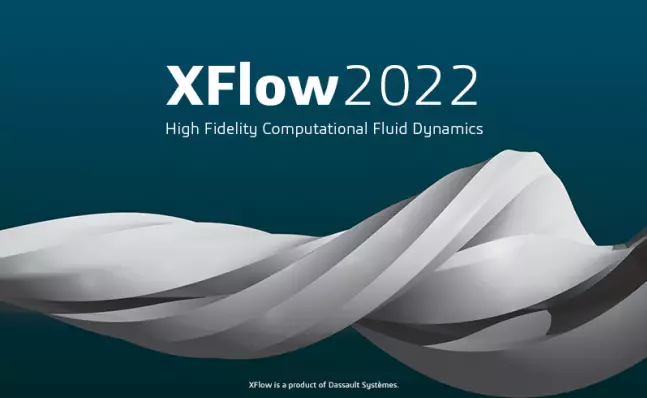DS Simulia XFlow 2022 Build 116.00 x64
SIMULIA XFlow offers unique, particle-based Lattice Boltzmann technology for high fidelity Computational Fluid Dynamics (CFD). This state-of-the-art technology enables users to address complex CFD problems involving high frequency transient aerodynamics, real moving geometries, complex multiphase flows, fluid structure interactions and aero acoustics.

XFlow’s automatic lattice generation and adaptive refinement capabilities minimize user inputs thereby reducing time and effort in the meshing and pre-processing phase of a typical CFD workflow. This enables engineers to focus the majority of their efforts on design iteration and optimization, rather than the time consuming meshing process.
With XFlow’s discretization approach, surface complexity is also not a limiting factor. The underlying lattice can be controlled with a small set of parameters; the lattice is tolerant to the quality of the input geometry and adapts to the presence of moving parts.
In addition, advanced rendering capabilities provide realistic visualization to gain deeper insight into flow and thermal performance. Xflow’s unique capabilities enable companies to reduce physical testing while making to make better design decisions faster.
Minimum system requirements
Quad core processor
Windows 7/8.1/10 64-bit
At least 6 GB of RAM memory
500 GB of hard disk
512 MB graphics card and OpenGL >= 3.1 (If you use remote session software please check its OpenGL support)
x64 | File Size: 1.36 GB
Download
http://s6.alxa.net/one/2022/12/XFlo...ULIA_XFlow.rar
SIMULIA XFlow offers unique, particle-based Lattice Boltzmann technology for high fidelity Computational Fluid Dynamics (CFD). This state-of-the-art technology enables users to address complex CFD problems involving high frequency transient aerodynamics, real moving geometries, complex multiphase flows, fluid structure interactions and aero acoustics.

XFlow’s automatic lattice generation and adaptive refinement capabilities minimize user inputs thereby reducing time and effort in the meshing and pre-processing phase of a typical CFD workflow. This enables engineers to focus the majority of their efforts on design iteration and optimization, rather than the time consuming meshing process.
With XFlow’s discretization approach, surface complexity is also not a limiting factor. The underlying lattice can be controlled with a small set of parameters; the lattice is tolerant to the quality of the input geometry and adapts to the presence of moving parts.
In addition, advanced rendering capabilities provide realistic visualization to gain deeper insight into flow and thermal performance. Xflow’s unique capabilities enable companies to reduce physical testing while making to make better design decisions faster.
Minimum system requirements
Quad core processor
Windows 7/8.1/10 64-bit
At least 6 GB of RAM memory
500 GB of hard disk
512 MB graphics card and OpenGL >= 3.1 (If you use remote session software please check its OpenGL support)
x64 | File Size: 1.36 GB
Download
http://s6.alxa.net/one/2022/12/XFlo...ULIA_XFlow.rar
